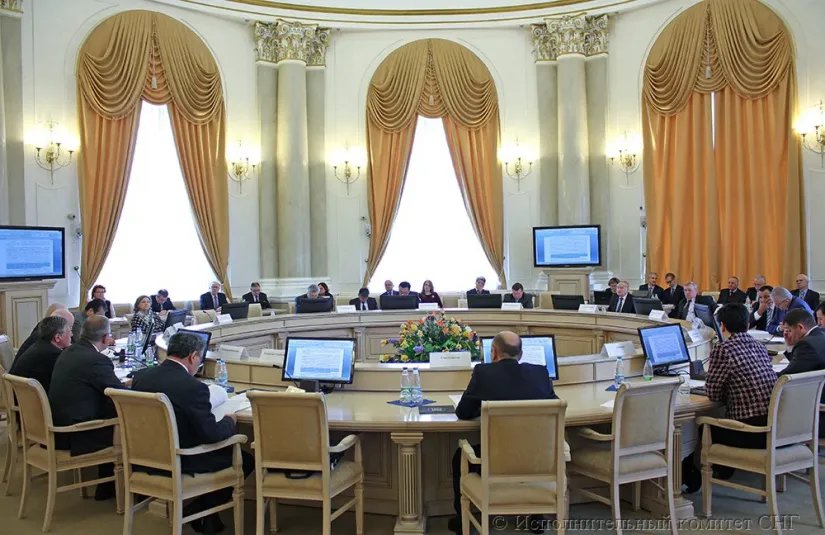Regular meeting of the Council of Permanent Plenipotentiary Representatives of the CIS Member Nations took place in Minsk
19 April 2017

The CIS Executive Committee under the chairmanship of the Permanent plenipotentiary Representative of the Russian Federation Andrei Shvedov held a regular meeting of the Council of Permanent Plenipotentiary Representatives of the CIS Member Nations under the Statutory and other Bodies of the Commonwealth.
Chairman of the Executive Committee – CIS Executive Secretary Sergei Lebedev, First Vice-Chairman Viktor Guminskiy and Vice-Chairman Kosynbek Zhusupbekov also attended the meeting
According to the CIS Executive Committee press-service, the permanent plenipotentiary representatives considered the results of this event and exchanged views on pressing international and regional problems, as well as discussed some aspects related to improving performance of the CIS bodies and strengthening regional and international status of the organization.
The meeting adopted 15 documents aimed at strengthening cooperation of the CIS member nations in law-enforcement, cultural, humanitarian and military areas. The members of the Council decided to fully support the implementation of the adopted documents.
Besides, the Council discussed the 10-year activity of the Intergovernmental Foundation for Educational, Scientific and Cultural Cooperation (IFESCO), which aims to enhance the development of common humanitarian space and intercultural dialogue in the Commonwealth through support and implementation of joint projects in cultural, educational and scientific areas, as well as in the fields of preserving cultural heritage, information and mass communications, sports, tourism, and youth outreach.
The meeting also considered the issue of increasing efficiency of information support in the Commonwealth, which is currently implemented simultaneously at two levels: within each CIS member nation through its own information resources, and at the intergovernmental level involving the Commonwealth bodies and existing intergovernmental organizations.



